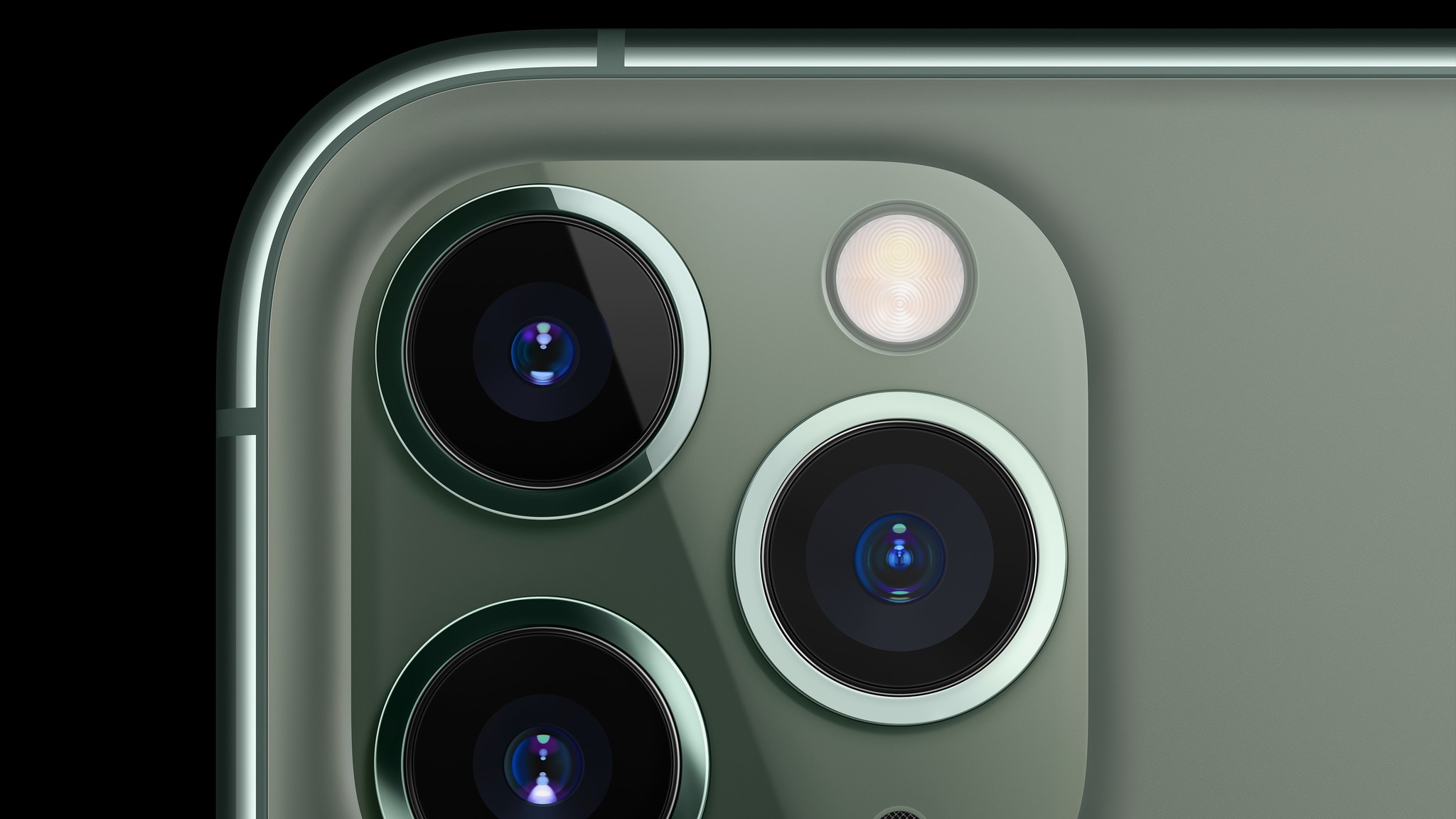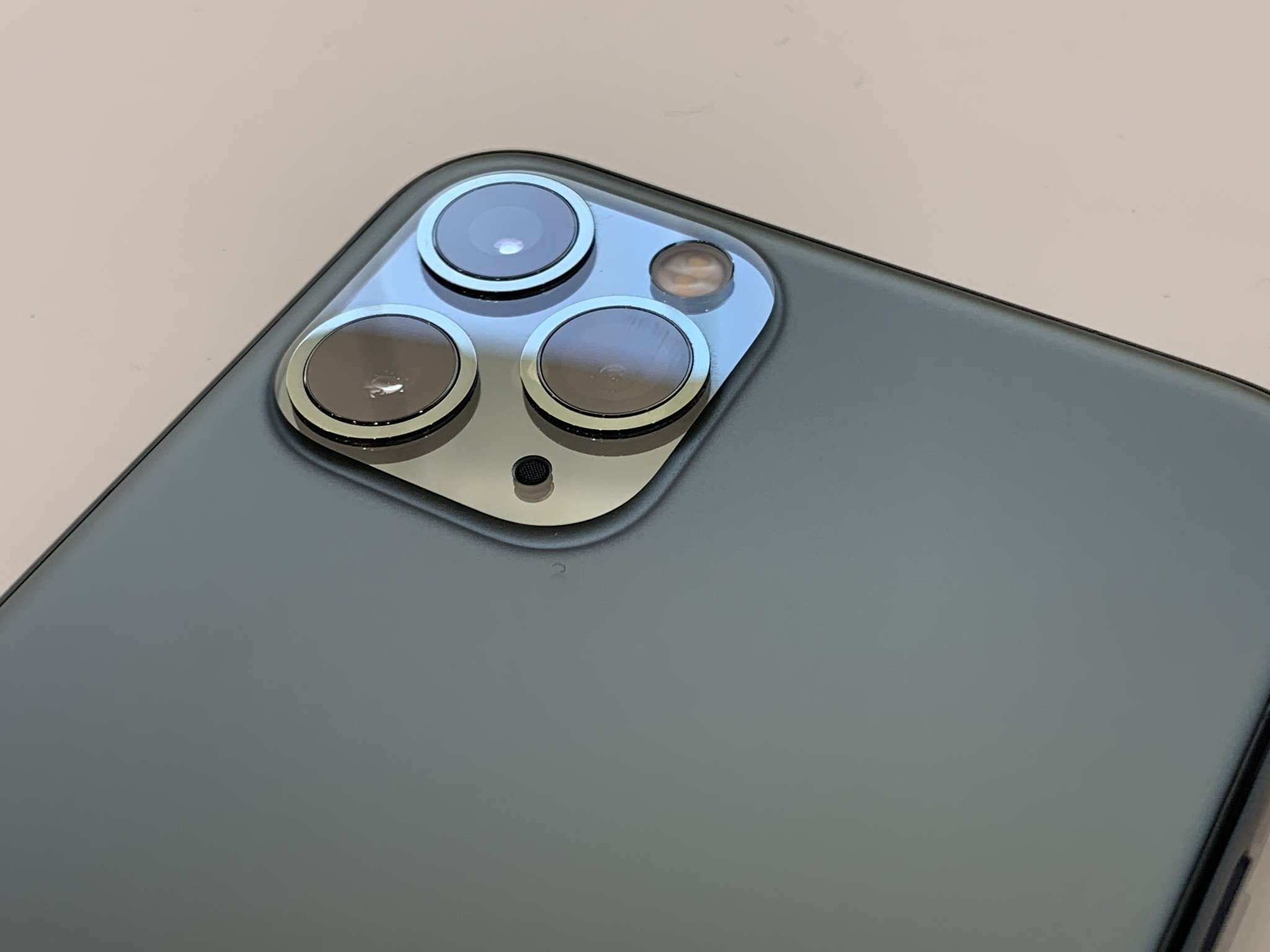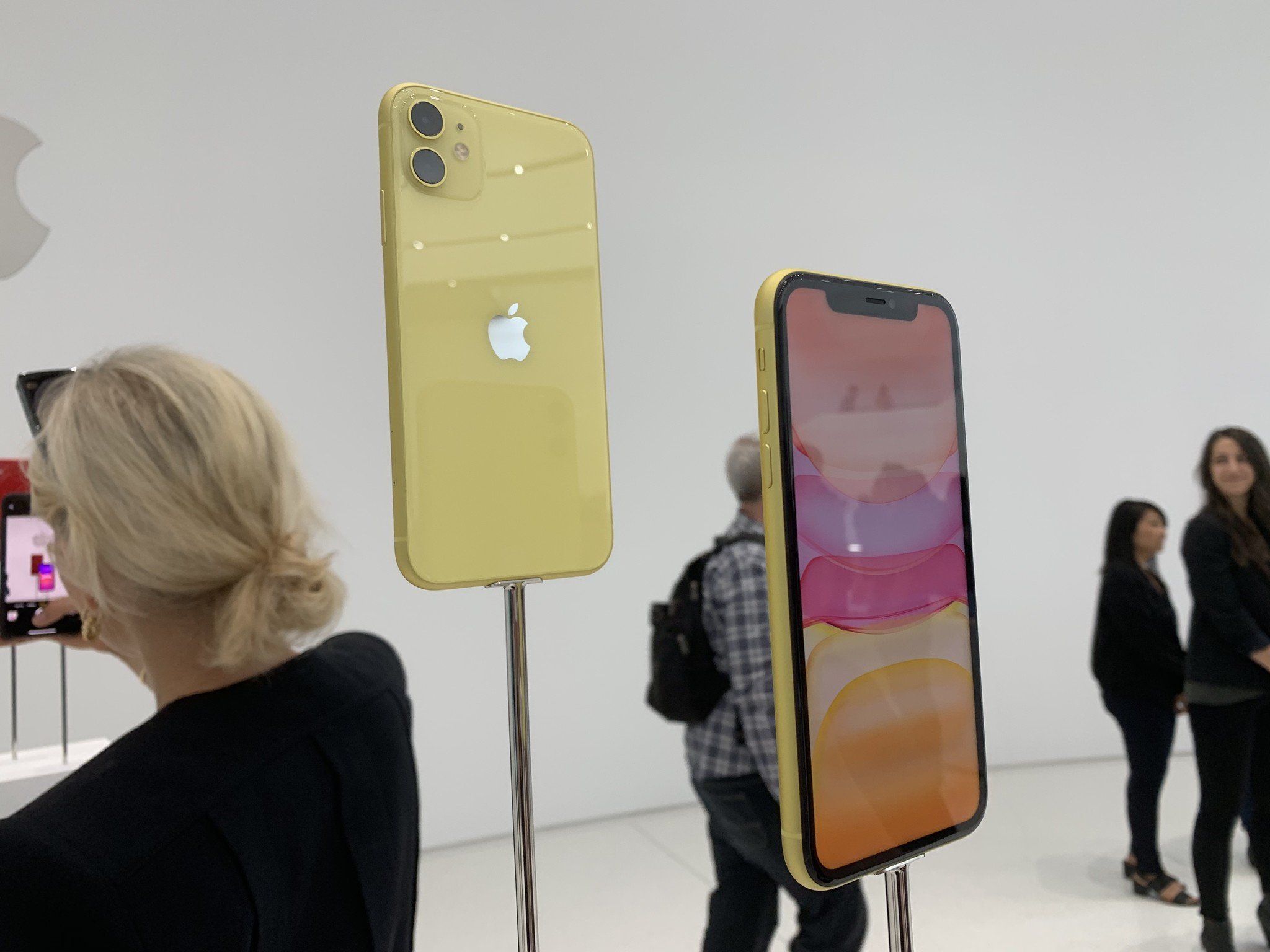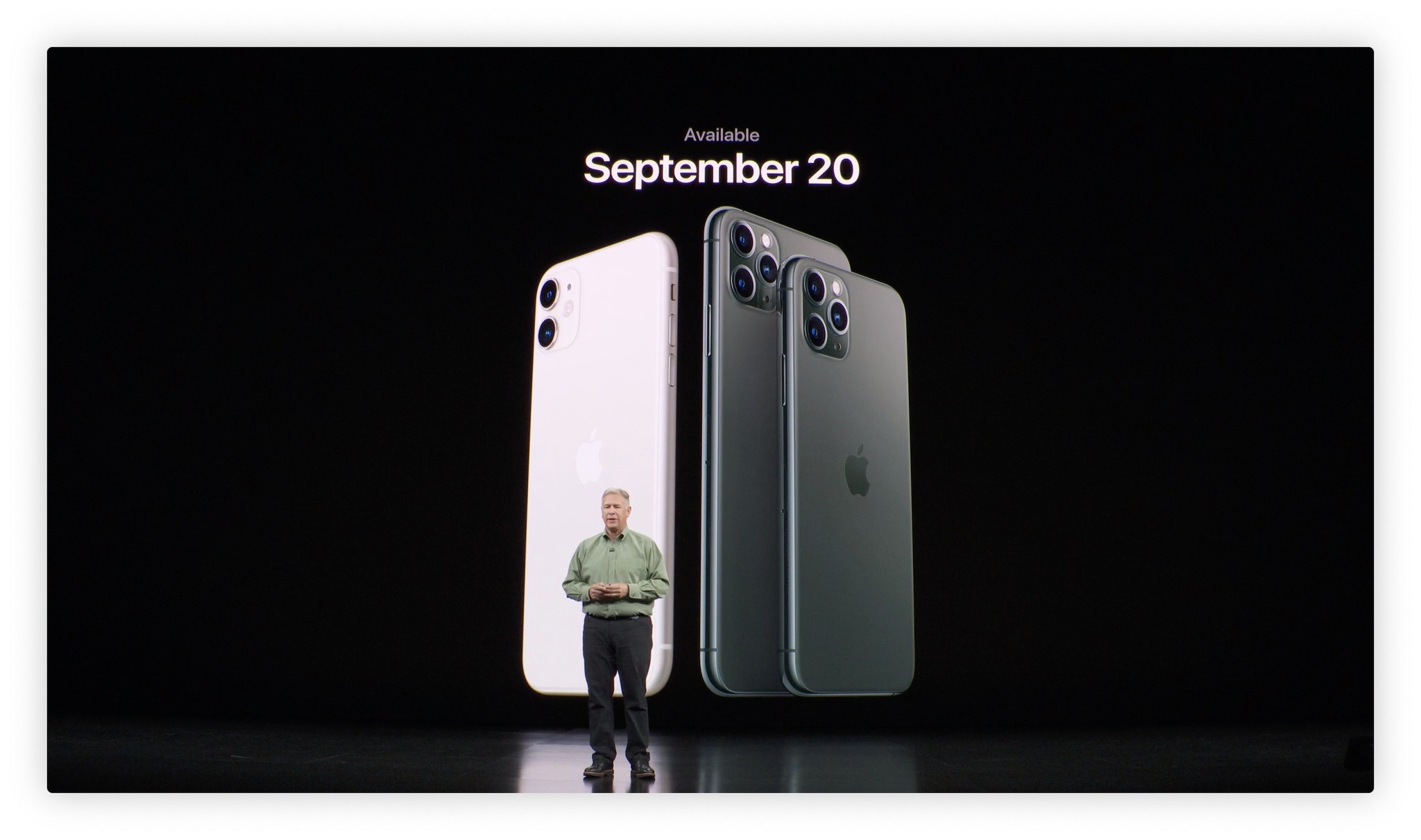Is Apple trying to convince us that the iPhone 11 Pro is only for professional photographers?

During the iPhone Plus era, I always went with the largest iPhone on the market since it was the one with the best features. I did the same thing last year when buying the iPhone XS Max. This year, the choice isn't so simple because the differences between the three new handsets look look to be closer than ever before. Or are they?
What's a "Pro"?
At the 2019 iPhone Event, Apple introduced the first iPhone "Pro" models in the history of the handset. Like the iPad Pro lineup before it, the new handsets seem to target a specific group of buyers. Instead of designers, videophiles, and business professionals, however, the iPhone 11 Pro and iPhone 11 Pro Max seem solely aimed at the professional photography market. Though the triple-lens camera system of the iPhone 11 Pro is astounding, it's not necessarily what pro photographers need.

There are a lot of reasons why traditional cameras continue to best mobile devices for professionals, including resolution, control (choice of aperture and shutter speed), choice of lenses, and more. Though computational software can mimic similar effects of an SLR, it's still not as complex and roubust as using dedicated lenses and pre-shoot adjustment controls. The flexibility just isn't there yet.
The maximum storage capacity on an iPhone 11 Pro and iPhone 11 Pro Max is 512GB with no slot for added storage, which can prove prohibitive for anyone seriously working on a photo shoot with editing and transfering requirements. In other words, yes, the cameras on the newest Pro models are amazing and the best we've ever seen on an Apple handset, but we're still talking about mobile phone cameras here, folks.
Speaking recently, Eric Shashoua, CEO and Founder of Kiwi for Gmail, agrees, noting:
The "iPhone fatigue" people refer to boils down to the fact that all these new features they keep introducing are "pushing the envelope," as Phil Schiller says. "Highest quality video", "Best camera", "Best dark mode", "Faster processor" -- these aren't the big changes we had with the iPhone 4 getting a retina screen, or the iPhone 6 making the screen so much larger. Even the camera is pushing more and more pro SLR features to users. It was one thing when the camera used to be terrible, but now it's incrementally better.
Why did Apple spend so much time focusing on the new cameras on the iPhone 11 Pro series if it wasn't targeting professional photographers?
Without a major design change, I think Apple was trying to highlight the iPhone Pro's shiniest new feature (hey, there's an ultra-wide lens!) instead, even though the iPhone 11 Pro lineup has some amazing new features that will probably benefit most users more — including a more durable design, a better quality screen, a much longer battery life, better water resistance, and more.
Master your iPhone in minutes
iMore offers spot-on advice and guidance from our team of experts, with decades of Apple device experience to lean on. Learn more with iMore!
In doing so, I think Apple made a mistake. I wonder whether some likely iPhone 11 buyers might have purchased an iPhone 11 Pro had Apple spent more time highlighting these major upgrades a little more (I mean, that extra battery life alone is a huge improvement over all iPhones).
Comparison time: Pro vs. iPhone 11
Before discussing the differences between the Pro models and the iPhone 11, it's essential to know the similarities.
All three models include Apple's new A13 Bionic chip with third-generation Neural Engine. Each offers a 12MP TrueDepth camera with 4k video recording up to 60 fps. And the models are each splash, water, and dust resistant, and each supports Apple Pay, Face ID, and Apple Card.
The differences between the three models come down to the back camera, type of display, battery life, and storage options. There is one other difference also worth highlighting: the improved materials used on the back of the iPhone 11 Pro.
The iPhone 11 Pro models include an ultra-wide lens for the first time, which joins the wide and telephoto lenses. The iPhone 11 and iPhone 11 Pro both have wide and ultra-wide, but the iPhone 11 Pro gets the added bonus of 2x optical zoom with the telephoto lens. With an iPhone 11 Pro, you'll also have a digital zoom up to 10x versus 5x for the iPhone 11.

Additionally, the iPhone 11 Pro and iPhone 11 Pro Max both include what Apple's calling a Super Retina XDR display. With this, you receive 2436-by-1125-pixel resolution at 458 ppi and 2688-by-1242-pixel resolution at 458 ppi, respectively.
The iPhone 11 still has an LCD or Liquid Retina HD display with a resolution of 1792-by-828-pixel resolution at 326 ppi. The more expensive models also offer a 2,000,000:1 contrast ratio compared to the much weaker 1400:1 contrast ratio found on the iPhone 11.
The Pro model storage capacities are 64GB, 256GB, and 512GB of storage. Conversely, the iPhone 11 is only available with 64GB, 128GB, and 256GB.
Finally, the Pro models offer a textured matte glass on the backside for the first time and stainless steel design. The iPhone 11 provides the same glass and aluminum design found on the iPhone XR.
Other differences include:
- Water resistance to a depth of 4 meters for up to 30 minutes on the Pro models vs. water resistance to a depth of 2 meters for up to 30 minutes for the iPhone 11.
- Battery life favors the Pro models for video playback, video streaming, and audio playback, but perhaps not as much as you'd expect. When you compare the iPhone 11 Pro and iPhone 11 on this point, the Pro advantage is just one hour on the first two, and there's no difference on the third.
A big decision

Because Apple focused so much of its energy on the iPhone 11 Pro's new cameras, my initial thought after watching this week's presentation was to select an iPhone 11. Knowing the entry-level 6.1-inch iPhone 11 is $699 versus $999 for the least expensive 5.8-inch iPhone 11 Pro and $1,099 for the 6.5-inch iPhone 11 Pro Max, buying the less expensive model appeared to be a no-brainer.
It was only after re-watching Apple's event, then examining the spec sheets for all three 2019 iPhone models, that my opinion changed. Paying at least $300 extra for a wide-angl lens doesn't seem worth it for me. When you throw in what's sure to be a more durable design, however, plus the other premium features such as OLED vs. LCD, I'm sticking with Apple's largest iPhone this time around.
When making your decision, don't just look at the iPhone 11 Pro camera. Instead, make a full comparison between the iPhone 11 and iPhone 11 Pro/Pro Max and decide whether you can live without all the extra features the Pro models provide. Either way, you're going to select an excellent handset.
Which new iPhone are you buying? How did you decide? Let us know in the comments below.

Bryan M. Wolfe has written about technology for over a decade on various websites, including TechRadar, AppAdvice, and many more. Before this, he worked in the technology field across different industries, including healthcare and education. He’s currently iMore’s lead on all things Mac and macOS, although he also loves covering iPhone, iPad, and Apple Watch. Bryan enjoys watching his favorite sports teams, traveling, and driving around his teenage daughter to her latest stage show, audition, or school event in his spare time. He also keeps busy walking his black and white cocker spaniel, Izzy, and trying new coffees and liquid grapes.
